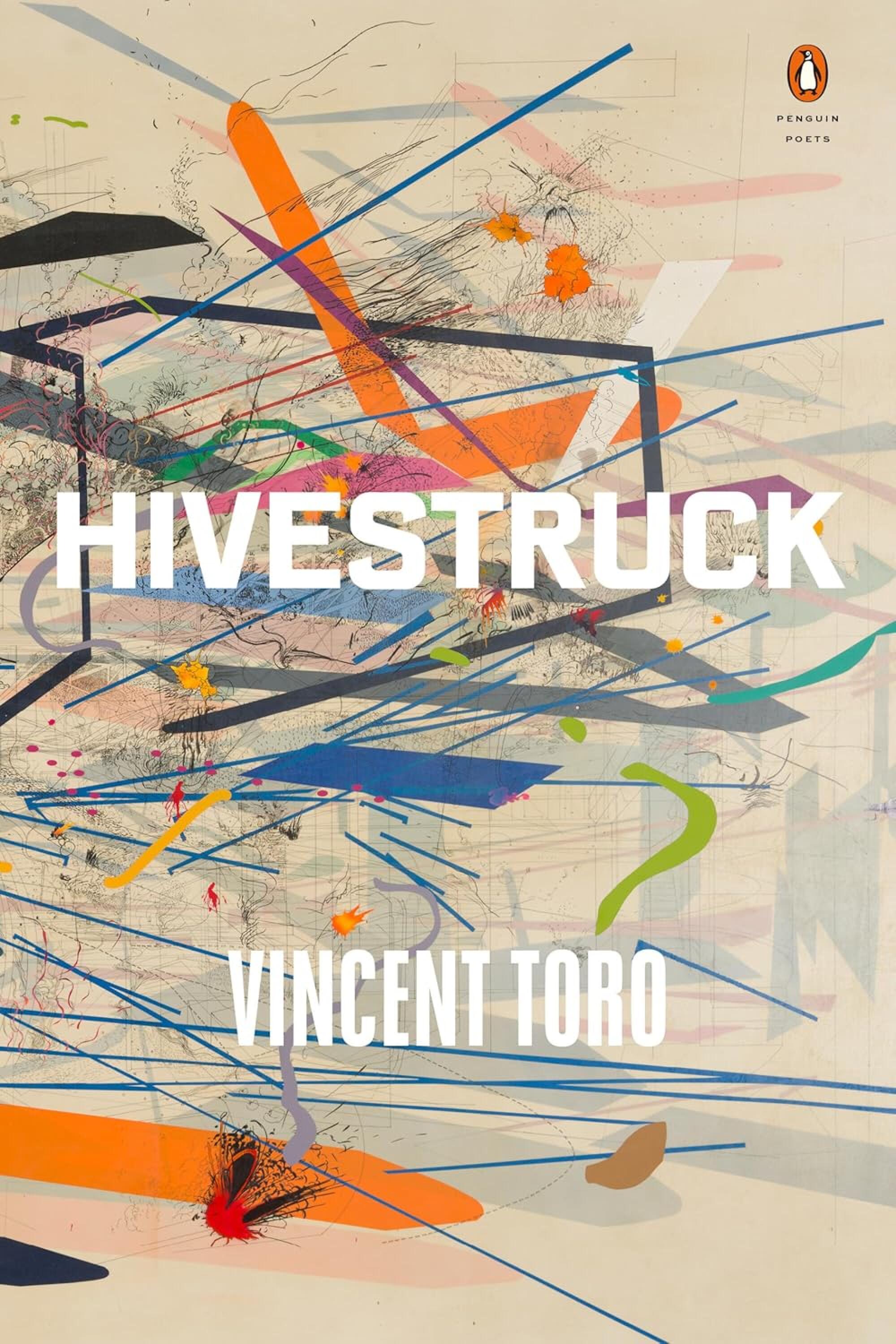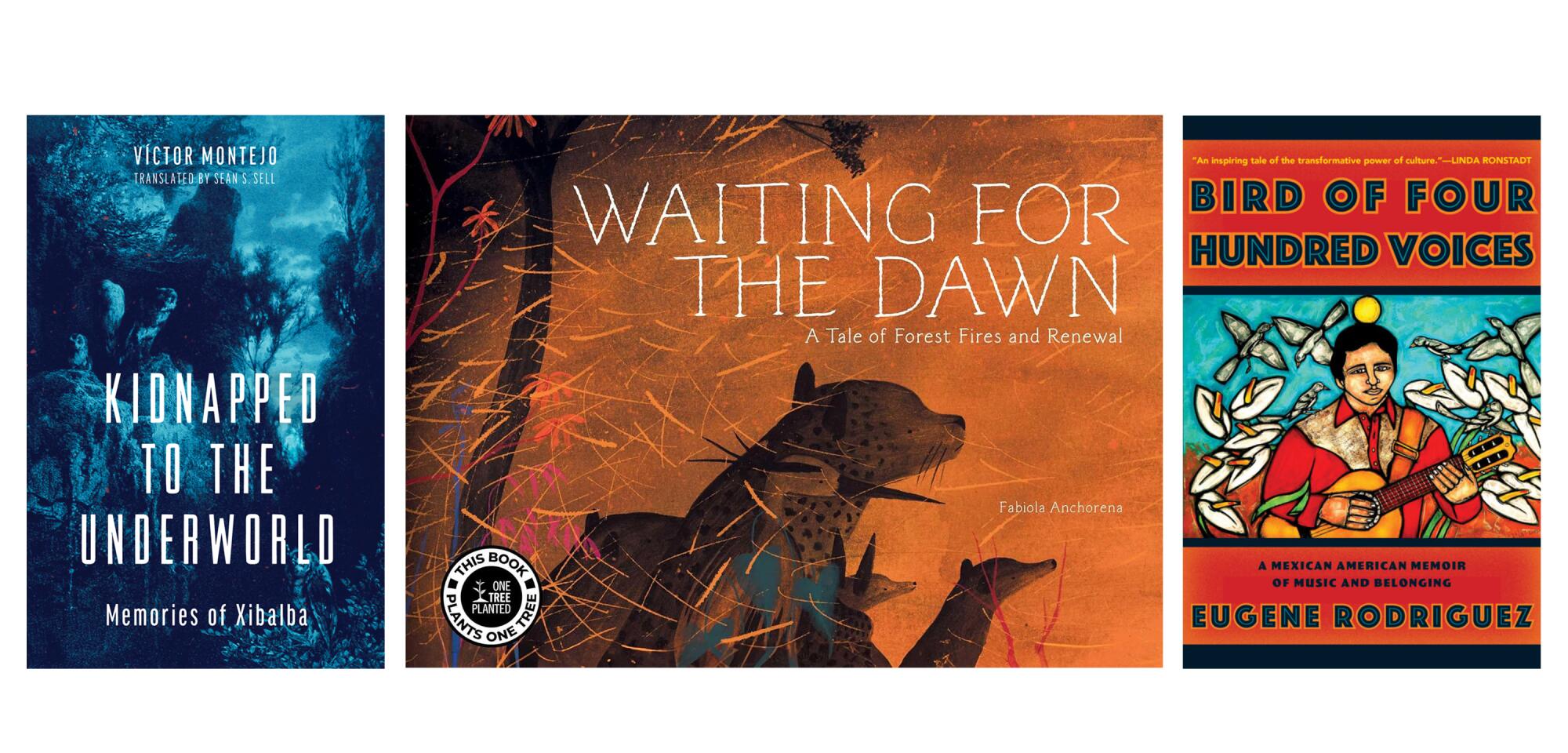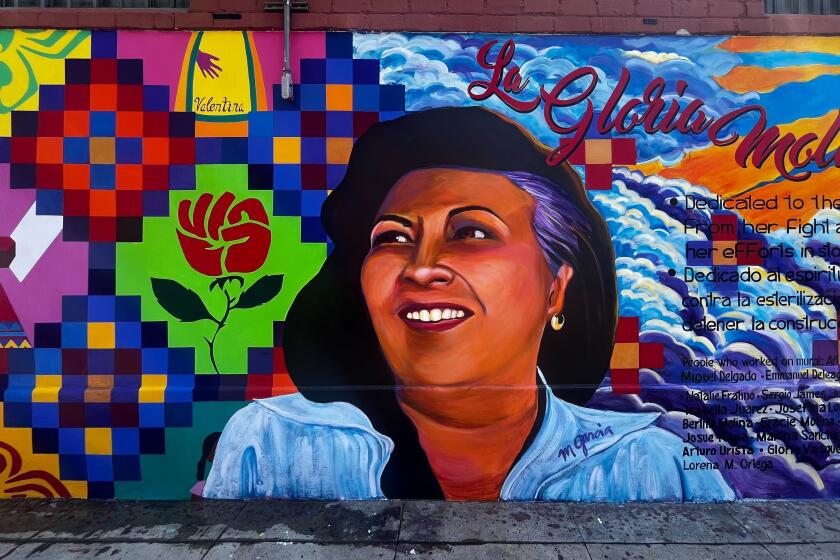
Many claim they don’t understand poetry, but author Vincent Toro challenges this idea. “[Have you ever] talked smack with your friends before, and exaggeratedor listened to music [and] enjoyed lyrics?” he asks. For him, that’s poetry in its essence, seamlessly integrated into our daily lives. The belief that poetry is inaccessible or difficult to grasp is nothing more than a myth.
Toro is a poet, playwright and professor of Nuyorican roots. In his latest poetry collection, “Hivestruck,” he confronts the complexities of modern life, particularly the relationship between humanity and technology.
Piri Thomas, the American Puerto Rican-Cuban poet, once said that every child is born a poet. Toro agrees and adds that everyone is born “with imaginative powers, dreaming about the world, singing, dancing, playing.” Poetry is reclaiming that. “I was a child of bullying and abuse,” said Toro. “I started writing because I felt really small and powerless in [the] situation that I was in.”

As a child of the ’80s, he found a source of strength in the rise of hip-hop. When he first heard Public Enemy in sixth or seventh-grade, Chuck D’s voice sounded invincible, like he could take on the world alone. Feeling empowered, he started documenting his emotions in his early teens. Writing became a way for him to reclaim his once-lost voice.
“If we’re all born to be an obituary then let me live as a hyperlink, a trending meme traversing the chatter of continents,” Toro writes in the poem Memexodus.
Over the last two decades, Mexican singer-songwriter Natalia Lafourcade has established herself as one of the most revered and celebrated artists from Latin America. This week, she’ll be performing two shows at the Hollywood Bowl.
At 15, Toro met his mentor at his aunt’s wedding in Puerto Rico, a distant cousin who was 10 years his senior and already established in New York’s theater scene. Someone mentioned his interest in writing at the celebration, and she asked to see his work. Despite his initial apprehension, he decided to share his notebook with her. She returned it with a simple, life-altering statement: “Oh my God, Vincent, you’re a poet.”
Someone saw something positive in him for the first time, more than the negative labels he was used to hearing. From that moment, his mentor and her husband took him under their wing, introducing Toro to the arts in ways he never imagined — Salvador Dalí exhibits, Latin jazz concerts and even his first poetry reading when he was 17 at a “tertulia,” a party at the home of the legendary Nuyorican poet, Pedro Pietri.
When Pietri himself praised Toro’s work and offered a heartfelt embrace, it solidified his desire to pursue poetry. He credits this journey with saving his life, providing the first sense of community and self-worth he had ever known.
“The Technocene already refashions words, compelling them to execute entirely new functions,” Toro writes in his “iHaibuns of the Technocene” poem. “Text is now a verb. Chats are conducted in silence … Amazon is no longer taken for a river or forest.”
Over the past 25 years, Toro has closely observed technology shift from a helpful tool to an all-consuming obsession. “Technology is like a religion. It’s the reason for living,” he said. For Toro, although technology has offered many instruments to help people connect, it frequently falls short of replacing genuine human connections.
He questions the communication taking place while we do this interview via Google Meet. He explains that while we are “seeing” each other, what we are really seeing is a computer interpretation. It’s actually not us but a communication mediation performed by a computer.
In “Hivestruck,” Toro illustrates this issue using Rene Magritte’s famous painting of a pipe with the writing “this is not a pipe,” where the painter “compel[s] us to be aware of the difference between a thing and a representation of a thing,” as Toro describes in the book. For him, the brain convinces us that it’s real, but we will leave that interaction feeling like something is missing.
“So much time spent looking, looking, searching, hoping something ... anything .... was looking back,” from the poem “A Brief History of My Screens.”
In his poem “iSestina,” Toro dives into the daily grind of endless scrolling, capturing how it drains our time and energy without us even realizing it. As we get lost in our screens, the world around us fades into the background, and all that’s left is the repetitive rhythm Toro describes: “scroll ad scroll text pic scroll swipe ad text.”
Toro’s latest collection is more than a reflection on technology; it is a thought-provoking celebration of creativity in the face of change. By infusing his poems with musicality, humor and profound reflections on our virtual interaction, he offers a delightful road map for navigating the challenges of the digital age without losing sight of our shared humanity.
Colombian singer-songwriter J Balvin didn’t set out to make an album. All he wanted was to fall back in love with making music. ‘Rayo,’ his seventh studio album, is the result of the rekindling.
De Los Reads September picks:

Waiting for the Dawn: A Tale of Forest Fires and Renewal by Fabiola Anchorena (Tra Publishing, August)
“Waiting for the Dawn” is an evocative picture book that uses poetic language and powerful, painterly illustrations to explore the effects of fires. In a jungle where the sun and moon have disappeared, animals of all kinds unite to uncover the mystery behind the endless night. This picture book highlights the urgent issue of climate change and plants a tree for every copy sold, making it a powerful tool for environmental education and action.
Kidnapped to the Underworld: Memories of Xibalba by Víctor Montejo, translated by Sean S. Sell (August, The University of Arizona Press)
This gripping tale by immerses readers in a vivid Maya underworld through the eyes of Antonio Esteban, who recounts his near-death experience in 1920s Guatemala. Guided by spirits, Antonio navigates Xibalba’s harrowing realms, revealing scenes of eternal punishment and redemption. Montejo’s narrative weaves together Catholic and Maya spiritual beliefs. This compelling blend of spiritual quest and family saga is a profound exploration of Guatemala’s rich cultural tapestry.
Bird of Four Hundred Voices by Eugene Rodriguez (Heyday, August)
Eugene Rodriguez’s memoir is a testament to the power of music as a unifying force between different cultures. Through his creation of Los Cenzontles in 1989, Rodriguez defied the rigidity of formal education and championed Mexican musical heritage, revealing how music can transcend boundaries and heal historical wounds. Highlighting collaborations with icons like Linda Ronstadt, Flaco Jiménez and Los Lobos, this book is both a celebration of Mexican culture and a powerful exploration of persistence.
More to Read
The Latinx experience chronicled
Get the Latinx Files newsletter for stories that capture the multitudes within our communities.
You may occasionally receive promotional content from the Los Angeles Times.








